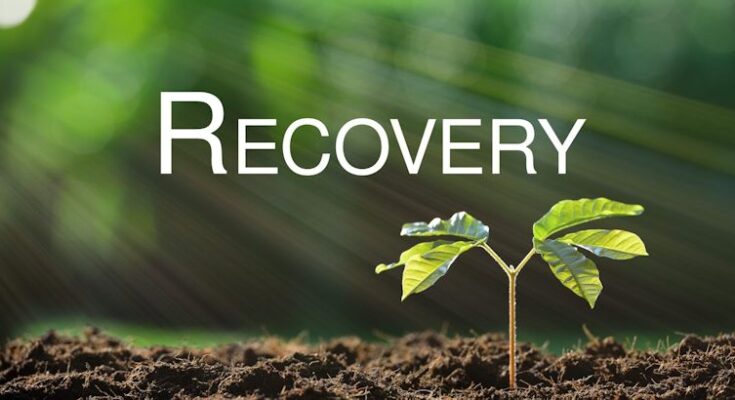Understanding Recovery: A Journey to Rebuilding Strength and Resilience
Recovery is a process of regaining what was lost—whether it’s health, stability, confidence, or a sense of normalcy. It applies to various aspects of life, including physical health, mental well-being, financial stability, or recovering from addiction, trauma, or natural disasters. While the context of recovery may differ for each individual, the essence remains the same: it is a journey of growth, resilience, and renewal.
In this article, we will explore the different types of recovery, the challenges involved, and practical steps to support the process.
Types of Recovery
1. Physical Recovery
Physical recovery often follows an illness, surgery, or injury. It involves healing the body and restoring strength and function. This type of recovery may include:
- Medical treatment and rehabilitation.
- Physical therapy to regain mobility and strength.
- Rest and proper nutrition to support healing.
Key Tip: Patience is vital during physical recovery, as the body needs time to heal.
2. Mental Health Recovery
Recovery from mental health challenges focuses on achieving emotional stability and overall well-being. It does not always mean the complete absence of mental health symptoms but emphasizes managing them effectively. This process often includes:
- Therapy and counseling to address emotional struggles.
- Medication, if prescribed by a healthcare provider.
- Building coping strategies for stress and anxiety.
Key Tip: Seek professional support and build a strong support network of friends and family.
3. Financial Recovery
Financial recovery occurs after experiencing economic setbacks such as debt, unemployment, or unexpected expenses. Steps in this recovery include:
- Assessing the financial situation and creating a realistic budget.
- Paying off debt gradually and prioritizing essential expenses.
- Exploring opportunities for increasing income or financial aid.
Key Tip: Consistent effort and financial planning can rebuild stability over time.
4. Addiction Recovery
Addiction recovery focuses on overcoming dependence on substances or harmful behaviors. It is a lifelong journey requiring commitment and support. Common components include:
- Participating in therapy or rehabilitation programs.
- Joining support groups like Alcoholics Anonymous or Narcotics Anonymous.
- Developing healthier coping mechanisms to manage triggers.
Key Tip: Surround yourself with positive influences and maintain a strong support network.
5. Trauma Recovery
Recovery from trauma involves healing from the emotional and psychological impact of distressing events. This type of recovery often requires:
- Professional therapy, such as cognitive-behavioral therapy (CBT) or EMDR (Eye Movement Desensitization and Reprocessing).
- Practicing mindfulness and relaxation techniques.
- Gradual exposure to triggers in a safe and controlled way.
Key Tip: Healing from trauma is a personal process that takes time and compassion.
6. Community and Disaster Recovery
After natural disasters or large-scale crises, communities often face the challenge of rebuilding lives, infrastructure, and morale. Community recovery efforts may involve:
- Providing immediate relief through food, shelter, and medical aid.
- Restoring infrastructure and public services.
- Supporting emotional recovery through counseling and community programs.
Key Tip: Collaboration and resilience are essential in rebuilding affected communities.
Challenges in Recovery
Recovery is rarely a linear process. It comes with challenges such as:
- Emotional setbacks: Feelings of frustration, sadness, or hopelessness may arise during the journey.
- External pressures: Financial constraints, societal expectations, or unsupportive environments can hinder progress.
- Physical limitations: In cases of injury or illness, physical recovery may take longer than anticipated.
Despite these challenges, persistence and resilience can lead to meaningful progress.
Steps to Support Recovery
- Set Realistic Goals
Break your recovery into manageable steps. Celebrate small milestones to stay motivated. - Seek Professional Help
Whether it’s a doctor, therapist, financial advisor, or support group, professional guidance can provide valuable tools and insights. - Build a Support System
Friends, family, and community members can offer encouragement and assistance during difficult times. - Practice Self-Care
Prioritize activities that promote mental and physical well-being, such as exercise, relaxation, and hobbies. - Stay Patient and Positive
Recovery takes time, and setbacks are normal. Focus on progress, not perfection. - Educate Yourself
Understanding your specific recovery process can empower you to make informed decisions and actively participate in your journey.
The Importance of Recovery
Recovery is not just about returning to a previous state—it’s about growing stronger and more resilient. It is a testament to the human capacity for healing and adaptation. While the road may be long, every step forward is a victory worth celebrating.
Whether it’s overcoming personal challenges, rebuilding after a disaster, or healing from emotional wounds, recovery reminds us that with determination and support, we can overcome life’s difficulties and emerge stronger.



